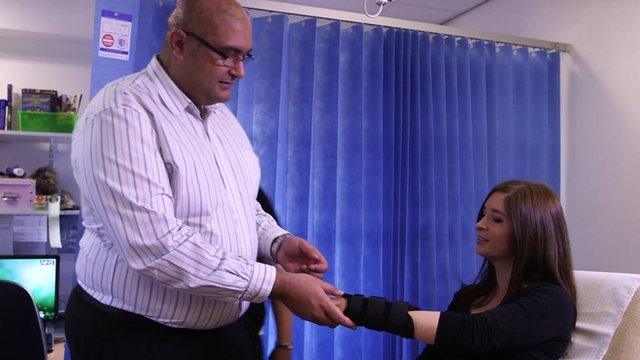'Super authority' urged to shape NHS workforce in Wales
- Published
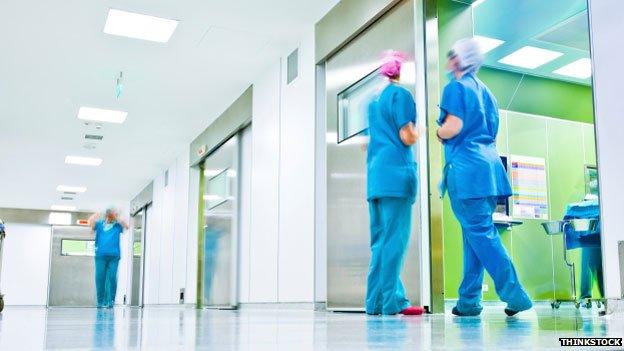
Funding on-going training should become 'part of the DNA of Welsh NHS' says the report
A "super authority" is needed to plan the future shape of the NHS workforce in Wales, says a review of training.
It also wants ministers to develop a new vision about how the NHS can get to grips with the "unsustainable" problems it currently faces.
Individual health boards currently decide on the mix of doctors, nurses and other professionals for each area.
But the review wants a "special" arms-length health authority to plan the 72,000-strong NHS workforce.
It claims the current arrangements are not working well enough and do not plan sufficiently well for the the type of care patients might need in the future.
The review panel, led by former Powys health board chair Mel Evans, said it was "constantly bemused by the number of bodies that exist in commissioning and providing education" in a country of just three million people.
Staff in the NHS in Wales cost £3bn a year.
The Welsh government currently spends £350m a year training health professionals but the review concludes the return on that investment is not good enough.
It points to problems of recruitment and retention "across many professions and grades" with significant amounts of money spent on temporary staff to cover shortages and sickness.
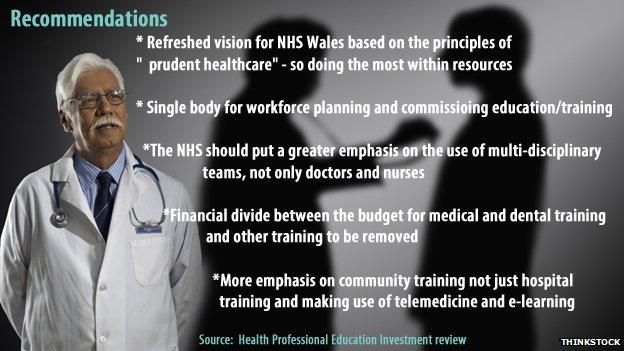
The review also notes concern that a third of Welsh medical graduates do not work in Wales when they qualify.
It also wants to give all schoolchildren in Wales the chance of work experience in the NHS and wider health services.
The new health authority should also pay attention to issues surrounding the Welsh language and explore ways of incentivising children from Welsh language medium education to work in the NHS
The head of the Welsh Deanery - the body currently responsible for professional training of doctors and dentists in Wales - has raised concerns that junior doctors may be being put off coming to work in Wales put because they think they would have to speak Welsh.
Prof Derek Gallen told BBC Wales in January said: "There's a perception they don't understand the geography, that they will have long commutes between trusts on their rotations and that they will have to speak Welsh".
The Welsh government said it would now consider the recommendations and respond in due course.
- Published30 January 2015
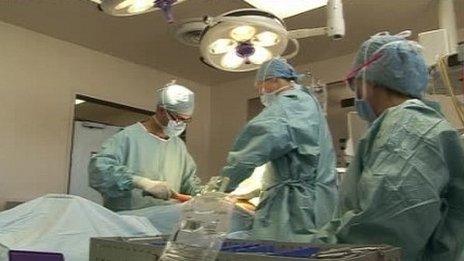
- Published2 November 2014
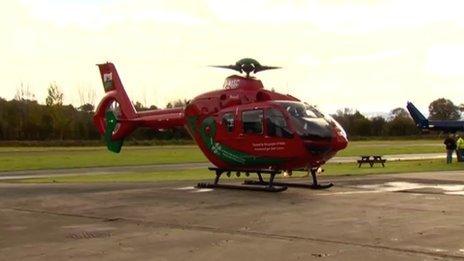
- Published24 January 2015
